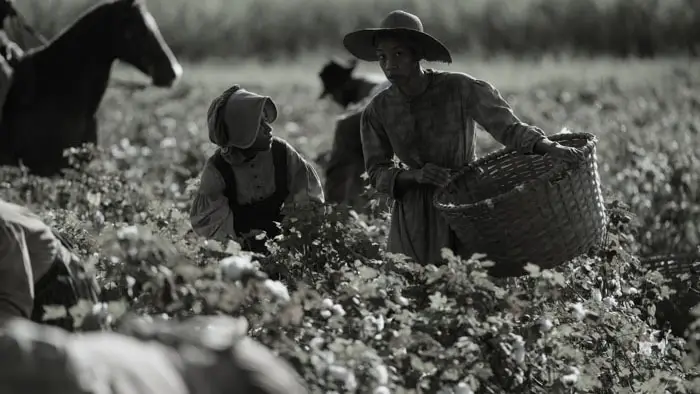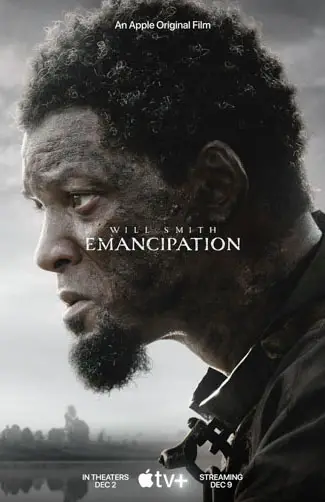
Remember that prolonged sequence in Steve McQueen’s infinitely more artistic and effective 12 Years a Slave, where the protagonist is almost hanged, his toes barely scraping the ground, withering in the hot sun as he attempts to breathe? This scene is sort of replicated in Emancipation, albeit in a shorter yet somehow more gratuitous fashion. Jim sets his borderline-rabid dog on Peter, holding the leash so that its foaming teeth and reddened gullet are mere inches away from Peter’s flinching face. It’s as uncomfortable to watch as it must’ve been to shoot. Yet, it’s, um, undeniably IMPORTANT, I guess?
Sure, Fuqua knows how to handle some tense action, but it feels wrong to be titillated by thrills and chills based on such a horrid reality. Little is left to the imagination here – if anything at all. What you see is what you get. Subtlety be damned, and so be artistry. At least McQueen’s film made us read between the lines, contained poetic interludes, and had performances of raw power. Smith, a formidable actor, grimaces, weeps, and rages, yet somehow keep us at arm’s length, never letting us in, never widening the scope to portray more than mere anguish and (potentially) salvation.

“…Fuqua knows how to handle some tense action…”
Foster’s villain is more introspective and, therefore, slightly more compelling. Still, we’ve seen this character before. To make matters worse, Emancipation is predictable, almost down to the last frame. Will Peter attain freedom? Will Jim be punished for his sins? Can these dogs be housebroken?
Robert Richardson is an incredible cinematographer who’s worked on some of Tarantino’s most visually-stunning films. But here, color is desaturated to the point where the film is almost black-and-white, diminishing Nature’s majestic, indifferent beauty. It makes things that much more relentlessly claustrophobic, and perhaps that was the point. But a dash of greenery could’ve served as a welcome (and effective) contrast to all the doom and gloom.
Throughout Emancipation, Fuqua applies a sledgehammer to a subject that demands a fine paintbrush. A truly skilled filmmaker will make you cry but then question why are you crying exactly? Was it a gesture, a glance, a phrase that spoke volumes? Or was it one man beating another to a pulp in front of his wife? Which one do you prefer? Maybe it’s time to look to the future as opposed to regurgitating the past. Or maybe we’ll never be entirely emancipated from the past’s control over us.

"…Fuqua applies a sledgehammer to a subject that demands a fine paintbrush."


